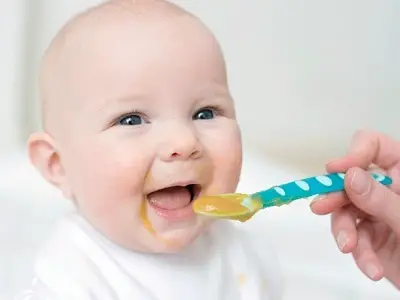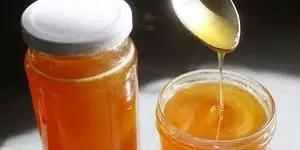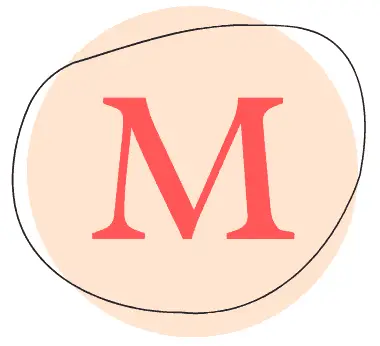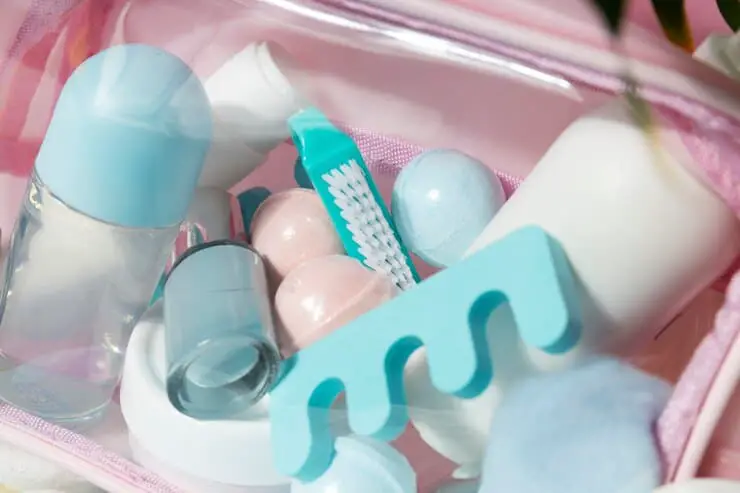When Can Babies Have Honey?
Parents of newborn babies are often overwhelmed with suggestions and tips about what is good for their baby. They are advised on everything from where they should shop, how to dress their child, what to feed, and even home remedies to try with the baby. But the sheer amount of recommendations can be daunting to sift through and comprehend.

One such friendly and a seemingly harmless tip is giving honey to an infant. To make your lives less complicated, we elaborate on this old wives’ tale about honey and discuss the question can babies have honey. We bust a myth here as we consider the benefits of honey while also detailing the complications of giving honey to an infant before the age of one.
Benefits of honey for Older Babies
Honey is supposed to be the liquid gold of the health and medical world. It can alleviate allergies, clear up a cough, treat wounds and burns, aid in sleeping better, and is a great source of antioxidants. Here is a list of the miracles that honey is capable of:
- Honey aids in relieving coughs, colds, and symptoms of congestion in an instant.
- Honey helps in promoting regular bowel movements.
- It is rich in antioxidants and does wonders to rejuvenate skin.
- It can accelerate healing of the wound and burn
- It improves cognitive function.
- It is a natural fix for sleeplessness.
- It is a powerhouse of vitamins, flavonoids, minerals, and essential amino acids.
- It helps in strengthening the digestive and immune system.
At What Age Can Babies Have Honey
Infant Botulism can seriously affect infants between the age of 2 to 6 months. It is advised, nevertheless, to feed honey to your child only after they cross the 12 months mark. At this stage, their immunity and their digestive system have developed to the extent that they can handle the botulinum bacteria.
What are the Risks of Honey for Babies younger than 12 Months of Age. There are certain known health risks associated with early introduction of honey.
We discuss the question-why can’t babies eat honey before 12 months:
1. Botulism
Honey can occasionally contain spores of a bacterium known as Clostridium Botulinum. This bacterium can produce a rare type of food poisoning in babies. It is known as botulism. Botulism in infants is a possibly fatal disease because a baby’s digestive system is underdeveloped. It cannot tolerate or fight certain microorganisms that may be innocuous to adults. Botulism, although potentially fatal to infants, can be treated if diagnosed at the earliest. An infant will recover well after treatment if the detection happens early on. As the spores of botulinum cannot be eliminated by cooking, heating, or pasteurizing, even cooked honey can be harmful to your infant.

Infant botulism brings up one or many of these symptoms:
- Breathing difficulties
- Bulbar paralysis
- Severe constipation
- Weakening of muscles
- Lethargic cry
- Fewer expressions
- Fatigue and listlessness
- Improper sucking
- Drooling
If your infant shows any of the mentioned signs, especially prolonged constipation, you should take them to the pediatrician along with a sample of the honey that the infant ingested to start immediate treatment.
2. Damage to Emerging Teeth
Honey, like any other sweetener, can cause damage to your infant’s gums and emerging teeth. The calorific content of honey is higher than refined sugar and therefore can cause dental deformities at an early stage. This may include occlusions, nursing caries, and overall oral health of your infant.
3. Pollen Allergies
The medical and health community have mixed opinions about foods that contain honey. Some experts say that cereals, bread, or yogurts that contain syrup are safe for infants. This is because commercial manufacturing consists of heating foods to extremely high temperatures, and it is assumed that the bacterial spores will be eliminated through these processes. There are still other experts and nutritionists who believe that spores can be extremely heat resistant and there is a low risk of these products containing botulinum bacteria. It is prudent to, therefore, avoid honey and preparations containing honey until your infant is at an age that is safe for him or her. Honey and infants do not mix well together.
Breastfeeding and Honey
If you as a new mother are aware of honey causing botulism, you must have doubts about whether you can consume it while breastfeeding. Lactating mothers are always concerned that anything they eat or ingest can be passed on to the baby through the milk. Well, mothers who are breastfeeding can safely consume honey. The bacteria are not passed through mother’s milk. So, if lactating mothers consume honey and babies drink the breast milk, the infants are not affected.
Unintended Ingestion Of Honey By Infants
Remember to take the following steps based on your baby’s age if you have unintentionally given them honey:
0-12 months of age: Take your infant to the doctor with a sample of the honey or food containing honey.
12-18 months: Although there is no certain danger, you may want to watch out for symptoms of botulism-like constipation, muscular cramps, lack of appetite, or listlessness in your baby before rushing to the pediatrician. If your infant displays one or all of these, take them to the doctor immediately.
18 months or older: There is nothing to worry about with babies of this age. The digestive systems have developed enough to produce spore eradicating acids, and your baby is in no harm from consuming honey.
Conclusion
Whatever material is available to support honey as a potent health enhancer, it is unsafe for consumption in any form by an infant who is less than a year old. Honey on the pacifier, honey rubbed on the gums, honey in any other form- they can all pose a danger to your infant’s life. That said, do not forget the potential benefits of honey for older babies. As parents, you make the best decisions for your baby, and you should be aware of what your instincts tell you each day.




